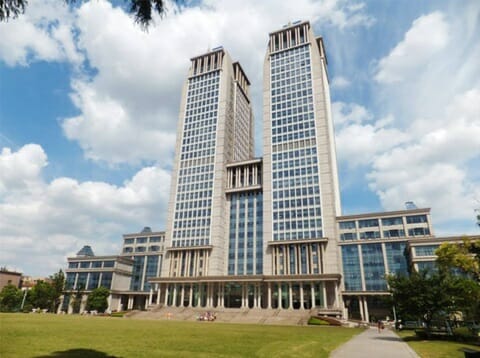Formosa and Chaco Citizens are very interested in blockchain technology. There are 48 daily searches regarding this topic on Google
The role of academies is, in many cases, to guide the society towards a path of economic, social stability and even in the development of new technologies. In this sense, the Faculty of Law, Social Sciences and Politics of the National University of the Northeast (UNNE), in Argentina, is studying the progress of Bitcoin and the use of blockchain platforms.
During these studies, the university emphasizes the legal implications of these technologies. The main objective is to offer, both to the national and regional government, the information necessary to develop a regulation as successful as possible, in order to benefit the users of cryptocurrencies or blockchain technology.
The name of this research group is Deodoro Roca. Moreover, according to the research conducted by UNNE, three provinces of the northeast region of the country have an unusual interest in blockchain technology. These regions are Formosa, Chaco and Corrientes.
The citizens of these regions are also interested in the legal perspectives of blockchain technology in the country, and in the most appropriate regulatory approach to guarantee the development of the ecosystem in the country.
“We have collected data about the interests of people in our provinces and how interested they were or how much they knew about Bitcoin and its operation. Through statistical data, we found that the national average was more or less in 48 daily searches regarding these topics on Google. We saw Formosa exceeded that measure, whilst Corrientes and Chaco were very close to the measure”, Facundo Barrios, a lawyer and fellow of the UNNE said.
Citizen Protection
The university is proposing a regulation for cryptocurrencies flexible enough to allow innovation, but effective enough to offer protection to citizens. This happens because the university seeks to achieve a regulation for cryptocurrencies and blockchain technology that does not limit the technological development in Argentina.
In this sense, the Bitcoin and other cryptocurrency users’ community and the technology entrepreneurs’ community would be used to protect users from possible scams or frauds that could harm them, as a consequence of an unclear regulation.
About how the regulation of these digital currencies would be, and from his point of view as a lawyer, Barrios believes that the laws should protect only the investor and the user of cryptocurrencies. “The technology should be, perhaps, uncontrolled, but it should be under surveillance by the authorities”, the researcher said.
However, Barrios also believes that it is not convenient to regulate something that is constantly changing. “If we do that, we would be regulating something that would be different tomorrow. Talking about Bitcoin, it is almost difficult for a state to control it”. In addition, he commented that, right now, people is talking about Bitcoin, cryptocurrencies and blockchain in the legal world. Therefore, there is still a long way to go.
For these reasons, UNNE and universities in other countries seek to contribute with enough research material or theoretical inputs to build a regulation for users of Bitcoin and other cryptocurrencies, but without subtracting space to innovation, knowledge of the nature of these digital currencies, their behaviors, or the effectiveness of established norms.
By María Rodríguez











